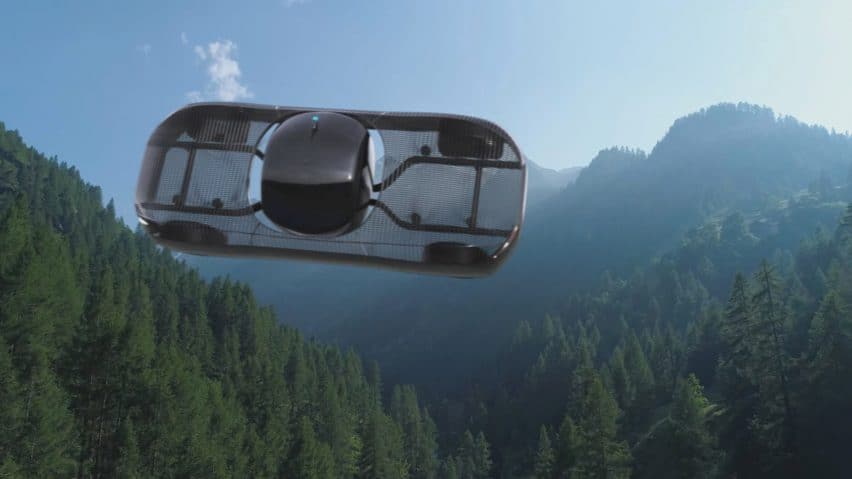The US Federal Aviation Administration has awarded a special airworthiness certificate to Armada Model Zero, a prototype electric car that can go from driving to flying by launching straight up into the air like a drone.
The electrical vertical takeoff and landing (eVTOL) vehicle by California company Alef Aeronautics, which has four wheels and eight rotors integrated into its frame, can now be tested in public flight demonstrations for the first time.
Alef Aeronautics claims this makes it the “world’s first real flying car” to be FAA-certified to fly since similar models that have received approval in recent years can fly, but not fit on regular roads or in parking spaces.
“This is one small step for planes, one giant step for cars,” said the company’s CEO Jim Dukhovny.
“We’re excited to receive this certification from the FAA. It allows us to move closer to bringing people an environmentally friendly and faster commute, saving individuals and companies hours each week.”
Called Armada Model Zero, the vehicle is a precursor to the Model A prototype that Alef Aeronautics unveiled in October 2022.
At first glance, it resembles a regular car. But hidden underneath its mesh exterior are eight rotors – four in the rear and four in the front where the engine would normally be.
These allow the vehicle to take off and land vertically, much like a drone or a helicopter, without the need for a lengthy runway.
Suspended in the centre of the carbon fibre frame is the passenger cabin, which can fit up to two people and is set on a pivoting platform known as a gimbal.
Once in the air, the vehicle’s entire frame rotates sideways by 90 degrees so that what was once the front and back of the car become two wings on either side of the cabin for maximum speed.
Meanwhile, the cabin itself automatically swivels on its axis so it always faces forward.
Alef Aeronautics says the company’s Model A vehicle will ultimately have a driving range of 200 miles and a flight range of 110 miles.
However, it is technically considered a “low-speed vehicle”, meaning it won’t be able to drive faster than about 25 miles per hour, and it would still require approval from the National Highway Traffic Safety Administration to be tested on public roads.
Alef Aeronautics says it expects to begin production and deliveries of its Model A at the end of 2025, with preorders starting at $300,000.
Other contenders vying to be the first flying car that is actually approved for public use include Volkswagen’s prototype Flying Tiger and the AirCar by Klein Vision, which was granted an airworthiness certificate in Slovakia last year.
Hyundai Motor Europe president Michael Cole previously said that he believed flying cars would be in our cities by 2030.

